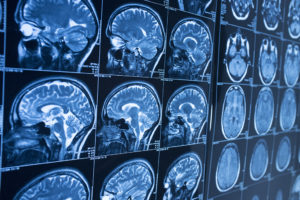
Epilepsy is a brain condition that causes excessive electrical activity between neurons, resulting in seizures.
If a person has two or more unprovoked seizures at least 24 hours apart, by definition they have epilepsy. It’s the fourth most common neurological disorder, affecting people of all ages.
Even still, many people don’t fully understand it.
Spectrum Health neurologist David Burdette, MD, helps bust some widely held myths surrounding epilepsy.
Obstruction
Myth: If someone’s having a seizure, you should hold them down and put something in their mouth so they don’t swallow their tongue.
Busted: You can’t swallow your tongue during a seizure. It’s physically impossible. Don’t restrain someone having a seizure and don’t force anything into their mouth. Just gently roll the person onto one side, support their head, protect them from injury and make sure their breathing is OK. Most seizures end on their own, within seconds or a few minutes.
Mortality
Myth: You can’t die from epilepsy.
Busted: While death from epilepsy is rare, about 1 in 1,000 people with epilepsy die from sudden unexpected death in epilepsy each year. People can also die from prolonged seizures. Make no mistake—epilepsy is a serious condition.
Quality of life
Myth: People with epilepsy can’t live a full, normal life.
Busted: Epilepsy can affect a person’s lifestyle, but most people with epilepsy can do the same things that people without epilepsy can do. People with seizure disorders are found in all walks of life. There may be some types of jobs that they can’t do because of possible safety concerns.
Genetics
Myth: If you have epilepsy, your children will have it.
Busted (mostly): Most children of people with epilepsy do not develop seizures or epilepsy. However, certain forms of epilepsy are thought to have a genetic link. Since genes are passed down through families, some people may be at higher risk.
Treatment
Myth: Epilepsy can’t be effectively treated.
Busted: There are many ways to treat, minimize, control and even—under the right conditions—eliminate the symptoms. Anti-epileptic medications do a great job of controlling seizures in about two-thirds of patients. For the remaining third, new surgical breakthroughs may be an option.
 /a>
/a>
 /a>
/a>
 /a>
/a>
I have intractable epilepsy. It has effected my life so much. I have finished year 10. I would always have daily seizures at school before I even went to the first class I had. My neurologist is suggesting that I should do surgery or VNS therapy next year. I just hate seeing those ”epilepsy test” videos because it makes me feel like the people who make those videos don’t realize the hard times people with epilepsy like me battle each day. If only the people who make those videos could realise that epilepsy is not something to laugh about.
Thank you for sharing your story, Maka, and for the reminder to all that epilepsy is a serious condition and a daily battle for those who suffer from it. We wish you the absolute best as you continue along your journey. Best wishes!